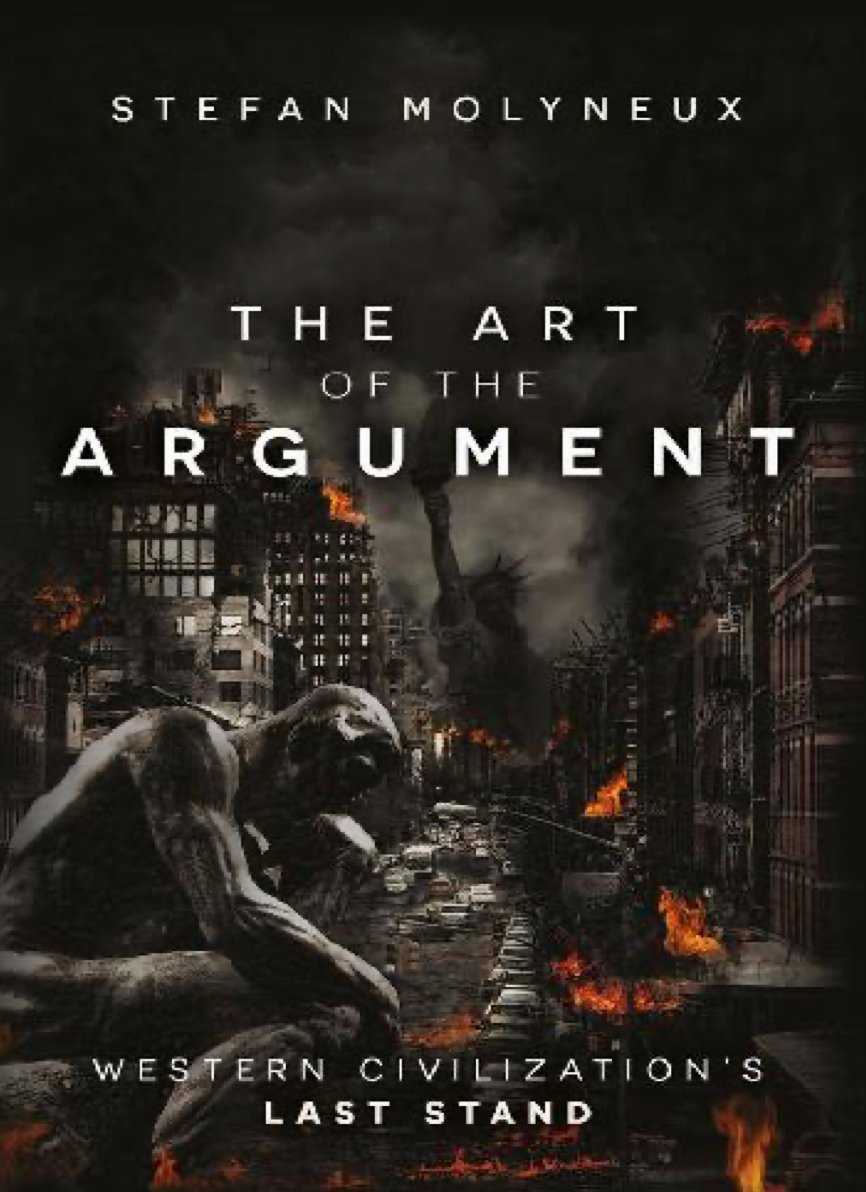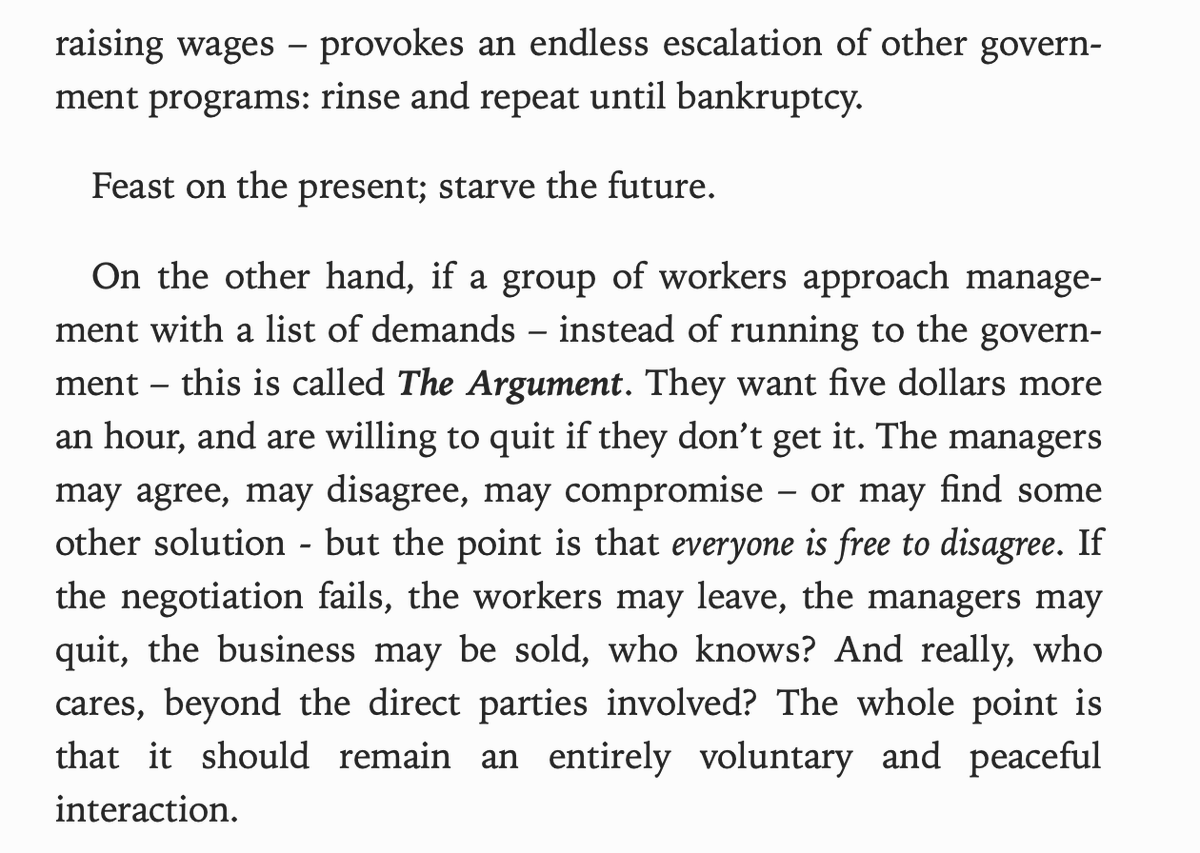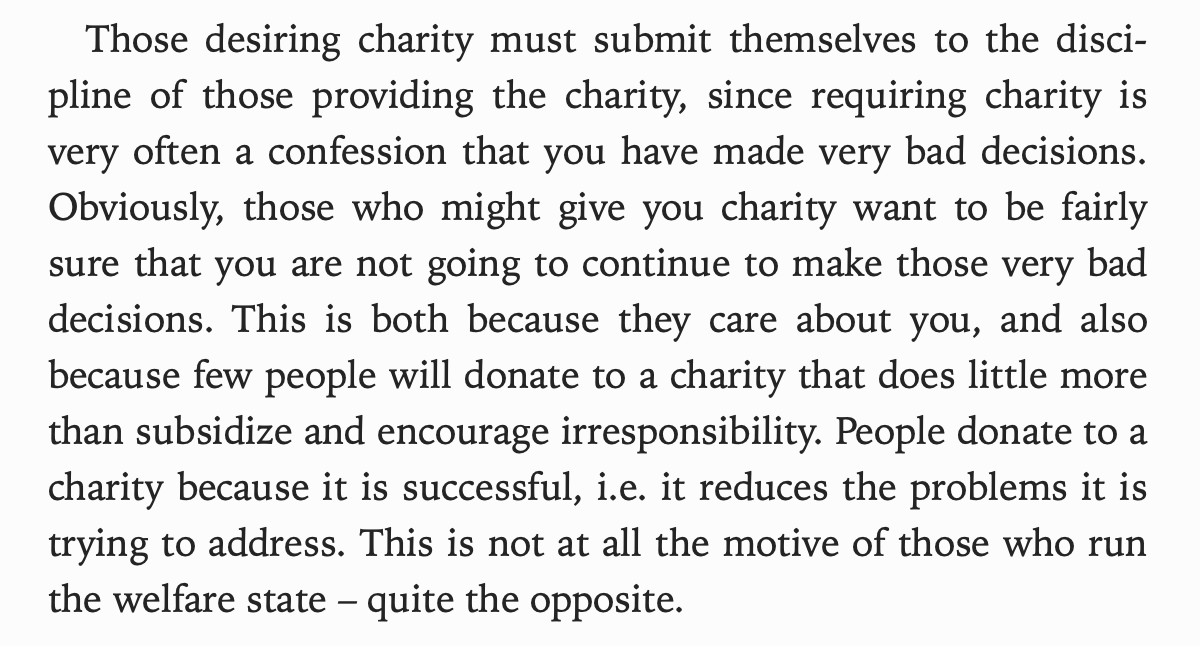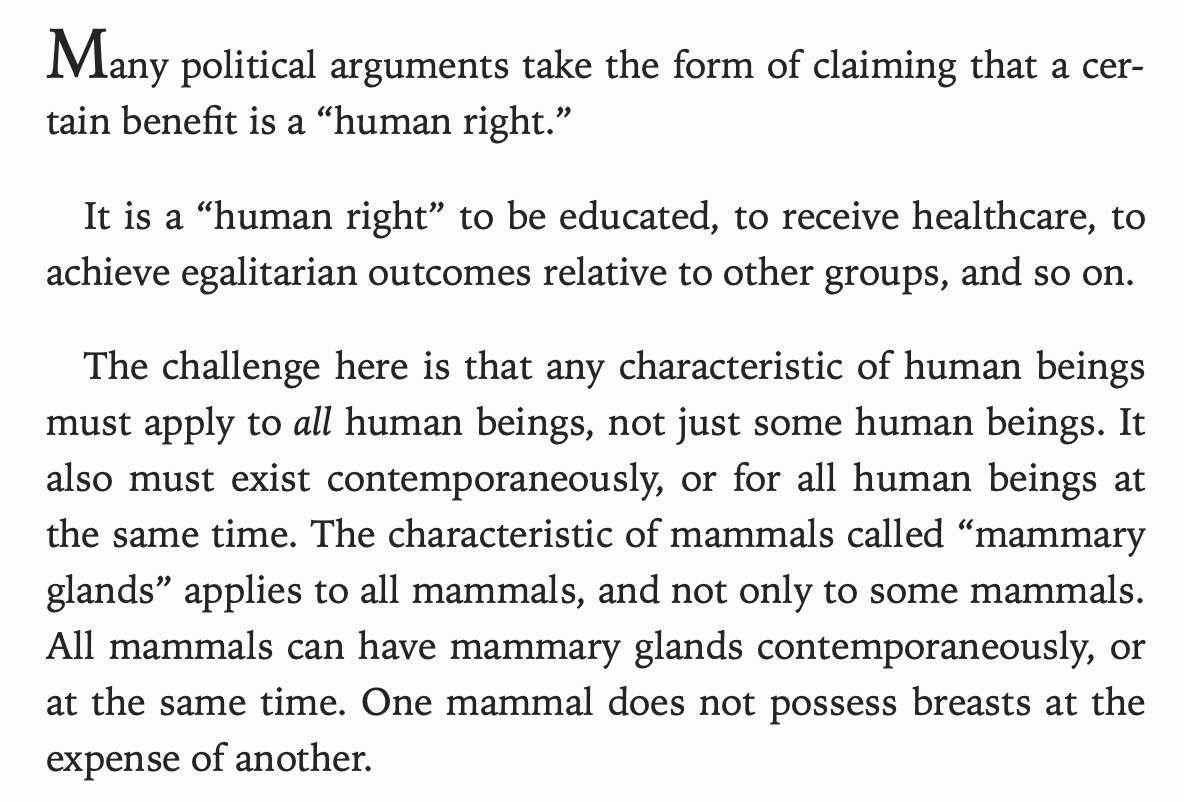For those out of the loop, this is a logic textbook Stefan Molyneux wrote in order to dismiss his feminist critics as not following the rules of "The Argument" and to justify being able to say shit like "black people tend to have lower IQs" because induction
(I should have put "logic textbook" in quotes)
We shall either be rational, or we shall die like dogs
So the first distinction he makes is between "truth arguments" and "value arguments" but then he says that truth has value and value must have truth (?) so I& #39;m just going to skip this. It& #39;s especially odd since he later rejects Hume& #39;s is/ought distinction.
He starts with "truth arguments" and defines deductive reasoning pretty accurately (except uses "valid" wrong)
Okay, so in order to own his critics, he has to explain how reasoning can go wrong. And he does in the "bad deductive reasoning section"
However, he goes on to give examples of bad deductive reasoning by listing *valid deductive arguments*
Skipping ahead a bit, he now claims that deductive reasoning is Alpha and inductive reasoning is Beta
Skipping ahead to his criticism of Hume cuz it& #39;s gold
Fuck I forgot that he calls self-contradictory arguments "self detonating" arguments
Anyway, as far as I can tell the anti-Hume argument seems to go:
1. Ought implies can
2. Therefore, cannot implies ought not
3. We cannot derive an ought from an is
4. Therefore, we ought not derive an ought from an is
5. But wait, I just derived an ought from an is
6. Fuck you
1. Ought implies can
2. Therefore, cannot implies ought not
3. We cannot derive an ought from an is
4. Therefore, we ought not derive an ought from an is
5. But wait, I just derived an ought from an is
6. Fuck you
He then argues for some form of deontology where wrong actions are the ones that are not universalizable?
It& #39;s astounding that he spends so much of the book going through good and bad forms of deductive and inductive reasoning and then all he can say when criticizing his opponents is they have ulterior motives
Workers shouldn& #39;t create "unions" that fight for "increased wages." They should *checks notes* organize and approach management with a list of demands, such as an increase in wages.
Stefan Molyneux on why we shouldn& #39;t listen to Stefan Molyneux
Plot twist: he& #39;s a positivist
Second plot twist: he& #39;s now a pragmatist
These are his literal arguments:
1. All humans have the right to education
2. Some humans must provide education
3. Those who provide education cannot simultaneously receive education
4. Therefore, not all humans have the right to education
1. All humans have the right to education
2. Some humans must provide education
3. Those who provide education cannot simultaneously receive education
4. Therefore, not all humans have the right to education
1. All humans have the right to healthcare
2. Some humans must provide healthcare
3. Those who provide healthcare cannot simultaneously receive healthcare
4. Therefore, not all humans have the right to healthcare
2. Some humans must provide healthcare
3. Those who provide healthcare cannot simultaneously receive healthcare
4. Therefore, not all humans have the right to healthcare
1. All humans have the right to housing
2. Some humans must provide housing
3. Those who provide housing cannot simultaneously receive housing
4. Therefore, not all humans have the right to housing
2. Some humans must provide housing
3. Those who provide housing cannot simultaneously receive housing
4. Therefore, not all humans have the right to housing
In his chapter on the importance of definitions he (1) defines capitalism wrong and (2) argues that the government having the power to determine what is legal tender is anti-capitalist?
Taking a break on this thread for my own mental health. May or may not return, who knows

 Read on Twitter
Read on Twitter





























